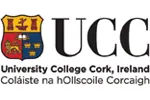We're moving! This site will be relocating to goingto.university in 2026. Please update your bookmarks to the new address.


Ireland
University College Cork (UCC)| The award | How you will study | Study duration | Course start | Domestic course fees | International course fees |
|---|---|---|---|---|---|
| BSc (Hons) | Full-time | 4 years | September | EU 3000 | EUR 3000 |
Overview
BSc Applied Mathematics and Physics focuses on a)analytical and logical thinking in the application of mathematics and b) intuitive and analytical understanding of theoretical and experimental physics.
Offered jointly between the Department of Physics and the School of Mathematical Sciences, the course provides a grounding in both disciplines. It combines strong practical and theoretical elements.
Applied mathematics and physics are genuinely complementary disciplines. Physical intuition provides a useful insight into the formulation and solution of equations. Rigorous mathematical thought and ideas provide a fundamental interpretation and insightful understanding of the phenomena.
Both subjects underpin much of modern technology, tackling problems that are as pressing and diverse as the development of new energy sources, safer medical diagnostics, and ever-smaller and faster devices for electronics and telecommunications.
Course Details
Entry to this degree is through CK407 or CK408
First Year will provide you with a broad foundation in Mathematical sciences (CK407) or Physics and Astrophysics (CK408)
This course consists of an equal combination of modules from both Applied Mathematics and Physics, covering a broad range of topics, including theoretical, numerical, computational and experimental work.
Physics concentrates on understanding the basic laws of nature and how they can be applied to explain a wide variety of physical phenomena. Physicists use a combination of theoretical and experimental methods, so training in both of these is an integral part of our Physics course.
Applied Mathematics is closely associated with mathematical modelling, which is widely recognised as the key universal tool of science and engineering. Models are used to describe and predict physical phenomena and other processes in society, spanning from economics to ecology and from medicine to meteorology. Successful mathematical modelling requires the applied mathematician to master many skills such as an understanding of physical phenomena, the construction of model equations, the ability to solve equations and the capacity for model evaluation.
Year 1
Refer to CK407and CK408
Year 2 Modules:
Astrophysics and Special Relativity; C/C++ Programming with Applications; Classical Mechanics; Computer Modelling and Numerical Techniques;
Electrostatics and Magnetostatics; Experimental Physics; Fourier Methods; Mathematical Experiementation and Chaos; Mathematical Modelling;
Multivariable Calculus; Quantum Physics; Thermodynamics and Statistical Physics
Year 3 Modules:
Core
Computational Techniques; Electromagnetism; Experimental Physics; Fluid Mechanics; Nonlinear Dynamics and Control; Optimisation and the Calculus of Variations;
Optics; Partial Differential Equations with Applications; Quantum Mechanics; Statistical Thermodynamics; Vector and Tensor Methods
Electives
Nuclear and Particle Physics; Observational Astrophysics
Year 4 Modules:
Core
Applied Stochastic Differential Equations; Fluid Mechanics; Partial Differential Equations with Applications; Perturbation and Asymptotic Methods;
Projects in Applied Mathematics and Physics
Electives
Condensed Matter Physics; Nuclear and Particle Physics; Observational Astrophysics; Advanced Mechanics; Advanced Quantum Mechanics;
Advanced Electromagnetism; Atomic and Molecular Physics; Quantum Field Theory; Introduction to Plasma Physics; Lasers and Photonics;
Computational Physics; Stars and the Insterstellar Medium; Galactic and Extragalactic Astrophysics; Experimental Physics; Quantum Optics;
Physics of Semiconductor Devices
Check the Book of Modules for Applied Mathematicsand for Physicsfor further information on modules in this programme.
Fact File
Course Code: CK407, CK408
Course Title: Applied Mathematics and Physics
College: Science, Engineering and Food Science
Duration: 4 years
Teaching Mode: Full-time
Qualifications: BSc (Hons)
NFQ Level: Level 8
Costs: Full-time EU/EEA/Swiss State undergraduate students may be exempt from paying tuition fees. The State will pay the tuition fees for students who satisfy the Free Fees Criteria. In 2016/17 the Student Contribution Charge will be EUR 3,000 and the Capitation Fee will be EUR 165.
2017 Entry Requirements: Refer to CK407 and CK408
Entry Points: 2016: 560 (CK407); 525 (CK408)
Course Practicalities
Expected lecture hours:In a typical year, you will study 12 modules. This equates to 12 lecture hoursper week on average.
Expected lab/practical hours:In a typical year, you will have 6-9 tutorial or laboratory hours per week on average. Modules in applied mathematics which involve significant use of the computer have associated laboratory practicals.The School of Mathematical Sciences has dedicated, well-equipped computer laboratories for this purpose. Certain physics modules are based entirely on practical laboratory work and the Physics Department has dedicated teaching laboratories as well as state-of-the-art research laboratories available.
Assessment
Written exams will take place before Christmas and in May. Not all modules will have formal examinations. Many modules use other types of assessment.
Application Procedure
Refer to detailed Application Procedure for CK407 and CK408.
Further Contact Information
E: School of Mathematical Sciences: [email protected]
P: +353 21 420 5818
W: http://www.ucc.ie/en/matsci/
2017 Entry Requirements: Refer to CK407 and CK408
Entry Points: 2016: 560 (CK407); 525 (CK408)
Contact University College Cork (UCC) to find course entry requirements.
Below are some suggested courses at other providers that you may also be interested in:
Bachelor program “Operational Manager in International Hospitality” Bachelor Degree
Vatel Bordeaux
Find out moreBachelor of International Studies / Bachelor of Laws Bachelor Degree
Western Sydney University
Find out moreProduction Arts: Props, Painting and Set BA (Hons)
Royal Central School of Speech and Drama
Find out moreIf you do not meet the entry requirements for this course then consider one of these courses from another institution:
There are 338 other courses listed from University College Cork (UCC). A selection of these are displayed below:
Join the StudyLink email list and never miss a chance to turn your study abroad dreams into reality!

Find out more about studying in Ireland